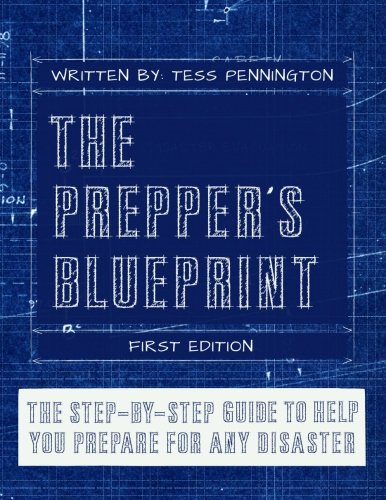There has been much evidence to support preparing for an emergency and disaster scenario on your own without putting your hopes in crowded shelters or government-operated camps. Even though FEMA (Federal Emergency Management Agency) has come out and said they are not efficient nor are they even effective at helping people, most just don’t seem to care, and won’t until it is too late. And a shelter may not have conditions that are any better.
One of the worst conditions imaginable would be the prison-like atmosphere of a FEMA camp. However, taking your family to a disaster shelter could be just as bad. In the aftermath of Hurricane Harvey, many found themselves in non-profit disaster shelters, and many reported conditions that were not healthy or safe for human beings, especially children. As hundreds of thousands of people packed in close proximity to one another in Houston’s convention centers, churches, mosques, and schools all serving as temporary shelters, their basic needs seemed to be met. Food, water, and a place to sleep were provided. But the danger of an infection -both viral and bacterial– and subsequent horrible illness was high. And in close quarters, these infections could easily spread sickening many in a short amount of time.
 The Prepperu2019s Blue...
Best Price: $11.98
Buy New $18.98
(as of 02:20 UTC - Details)
“The primary concern is communicable diseases,” Chris Van Deusen, a spokesperson for the Texas Department of State Health Services, told Newsweek. “When people get in that close proximity that’s sort of the right conditions for illness.” Health care providers, coordinators, and volunteers involved in operating shelters are constantly on the lookout for any sudden signs of illness in those packed in like sardines. Van Deusen says shelter residents are at risk for developing many respiratory illnesses such as influenza or common colds. Epidemiologists, sanitarians and health department workers constantly monitor the situation to ensure these problems remain in their control – meaning even life in a shelter is merely a little better than that of a FEMA camp.
The Prepperu2019s Blue...
Best Price: $11.98
Buy New $18.98
(as of 02:20 UTC - Details)
“The primary concern is communicable diseases,” Chris Van Deusen, a spokesperson for the Texas Department of State Health Services, told Newsweek. “When people get in that close proximity that’s sort of the right conditions for illness.” Health care providers, coordinators, and volunteers involved in operating shelters are constantly on the lookout for any sudden signs of illness in those packed in like sardines. Van Deusen says shelter residents are at risk for developing many respiratory illnesses such as influenza or common colds. Epidemiologists, sanitarians and health department workers constantly monitor the situation to ensure these problems remain in their control – meaning even life in a shelter is merely a little better than that of a FEMA camp.
But a violent bacterial infection from contaminated floodwaters spreading around to hundreds packed into a disaster shelter is far from the only concern. Children, and often young girls whose families have no other option than staying at a shelter often put the safety of their child at risk unknowingly. The risk of suffering from a sexual assault in a disaster shelter isn’t small. Officials are aware that incidences of rape and assault become more common in the wake of hurricanes such as Irma and Harvey because it becomes easier for predators to find victims. When state-wide evacuations for Hurricane Irma began, Florida’s Polk County sheriff tried to mitigate those fears, by announcing that sex offenders would be banned from all shelters. “We cannot and we will not have innocent children in a shelter with sexual offenders & predators. Period,” he tweeted. But based on how well the government runs their own shelters (FEMA camps) can anyone really trust that they will be able to keep out a sex offender? And if they do, that doesn’t mean there isn’t another creep lurking around the shelter who just hasn’t been caught yet.
 Prepperu2019s Long-Ter...
Best Price: $7.99
Buy New $8.95
(as of 05:50 UTC - Details)
Prepperu2019s Long-Ter...
Best Price: $7.99
Buy New $8.95
(as of 05:50 UTC - Details)
This is all the more reason to prepare yourself and to have the necessary provisions for your family in the event of a horrifying natural disaster. Everyone in the family should learn basic self-defense and be able to understand how to best avoid a dangerous situation that could lead to an assault or rape as many are putting their children in harm’s way unintentionally for a bottle of water and a dirty cot. All of these health and safety concerns can be averted if more of us can become better prepared ourselves and no longer feel the need to put our lives in the hands of others -whether it be a shelter or a FEMA camp.
For years, we have stressed the importance of having a preparedness plan including a financial plan for when disasters erupt. In the book, The Prepper’s Blueprint, we walk the reader through a prepping regimen with a guide and easy to follow instructions and give beginning preppers a foundation to build on so that one doesn’t have to rely on government handouts. And isn’t just preppers who look to themselves for their own lives. Even the FEMA Director wants Americans to start understanding the need to take on a prepper’s mindset.





